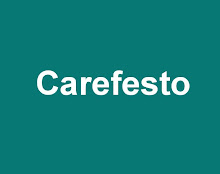A manifesto for healthcare: Carefesto
We need to know your way of thinking: a new mindset in order to make real change for improvement happen in healthcare
We have an idea of writing a manifesto that we hope will become a provocation for healthcare. The manifesto would be a set of rules that we would subscribe to stick to, to make health care better for patients, for those who provide the care. These would be rules that radically challenge how we think about healthcare; rules that would remind us of what we are aiming to achieve in all out interactions with healthcare; rules that say a great deal through a few words; rules that provoke us to rethink the way we currently think about healthcare improvement and change.
We want to use “associational thinking’’, whereby innovators make seemingly unrelated connections across topics, to find the rules that could become a manifesto for healthcare and, through modern social media, to find people who will help us to create a mindset in healthcare, based on the manifesto. This is the positive provocation.
Join us in creating our equivalent of ‘Lars rules’ for healthcare: Carefesto
We are seeking your ideas to help develop a set of rules, or manifesto, for healthcare. We want to use the “association” approach, inspired by Lars rules, to think radically and differently about how things could be different and create a “carefesto”.
We are using Twitter as a mechanism to harvest and collect ideas, through the hash tag #Carefesto and the Twitter handle @Carefesto. We will continuously update the Carefesto website as we get feedback and the list of potential ‘Lars Rules’ grows. We hope that, through Twitter, others will also help to synthesise the suggestions and help to create the final version of the rules.
Want to know more about ‘Lars rules’?
We would like to refer you to Dogme 95, a manifesto about film-making which was a radical reaction to a frozen and income-oriented film industry in the mid 1990s. Dogme 95 was the work of two Danish film-makers Lars von Trier and Thomas Vinterberg who reacted against the overblown budgets and cinematic excesses of the American film industry. They understood that new technologies combined with economic reality demanded a different way of thinking. Their values didn’t correspond to the values and thinking tendencies of contemporary film-making and they wanted to send an important message out to the industry by changing things radically. They wanted to rediscover a purity of cinema by refusing special effects, post-production modifications and other technical gimmicks.
Dogme 95, Trier and Vinterberg’s rules of restriction: how can they inspire healthcare to create a manifesto that demands transformation of all our work?Film-makers have historically often used the limitations placed upon them as inspiration, but few have used formulated restraints on their own freedom. However strictly the film-makers really follow their own rules, the existence of Dogme 95 led to increased public interest in Danish cinema and has provoked debate. Lars von Trier and Thomas Vinterberg sought to improve the direct engagement of the audience, rather than alienating or distracting them by over production. Dogme 95 was a way of stressing the obligation of film-makers to get back to the very essence and purpose of cinema. The manifesto included ten rules, which are called the “Lars Rules”.
“Lars rules” created a lot of energy in the world of cinema at the time and were both loved and hated by film-makers and critics for making a refreshing and revolutionary stand at a time when most film-makers were rushing to use more and more technical effects. They took film-makers back to the core purpose of their art form.
What would the equivalent of “Lars rules” be in our world of healthcare?
What would our ten point manifesto be for the future of healthcare? What should the “rules” be for the future of healthcare? If we are to follow the example of Lars von Trier, our rules will need to:
· Revolutionize the mindset about the relationship with and needs of the audience/patients/citizens
· Take healthcare back to its core purpose
· Enable everything to happen on location
· Strip away overproduction, supply-driven demand and special effects
· Call people to take radical action to re-imagine the healthcare industry
We hope that you can join us in creating a manifesto to help change the mindset of how we think about healthcare improvement and change.
Helen Bevan – Chief of Service Transformation, NHS Institute for Innovation and Improvement
Goran Henriks – Chief Executive of Learning and Innovation at Qulturum, Jonkoping County Council
Agata Rukat – Coordinator at Qulturum, Jonkoping County Council
Agata Rukat – Coordinator at Qulturum, Jonkoping County Council
Reuben Blackstock – Intern Coordinator, NHS Institute for Innovation and Improvement
Annie Taylor - Head of Marketing and Communication, NHS Institute for Innovation and Improvement
Christina Krause - Executive Director with the British Columbia Patient Safety & Quality Council
Ian Leistikow – Senior Inspector, Dutch Healthcare Inspectorate

0 comments:
Post a Comment